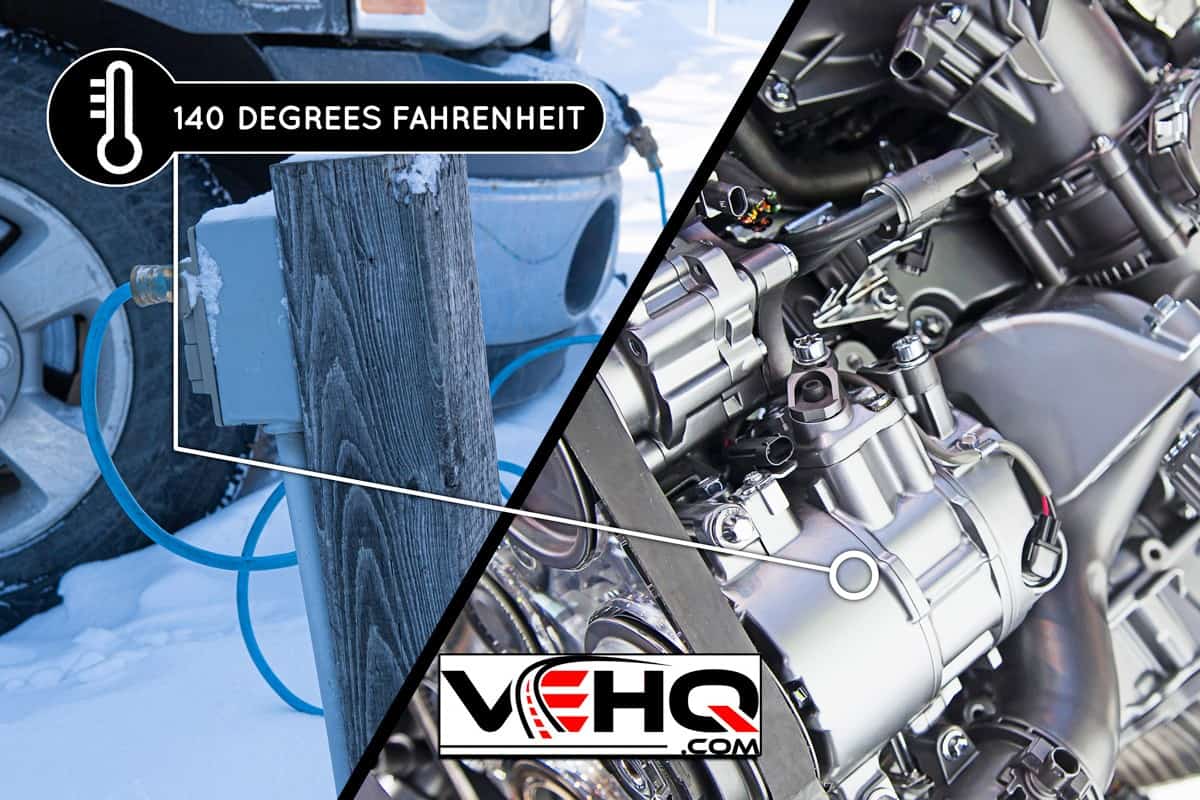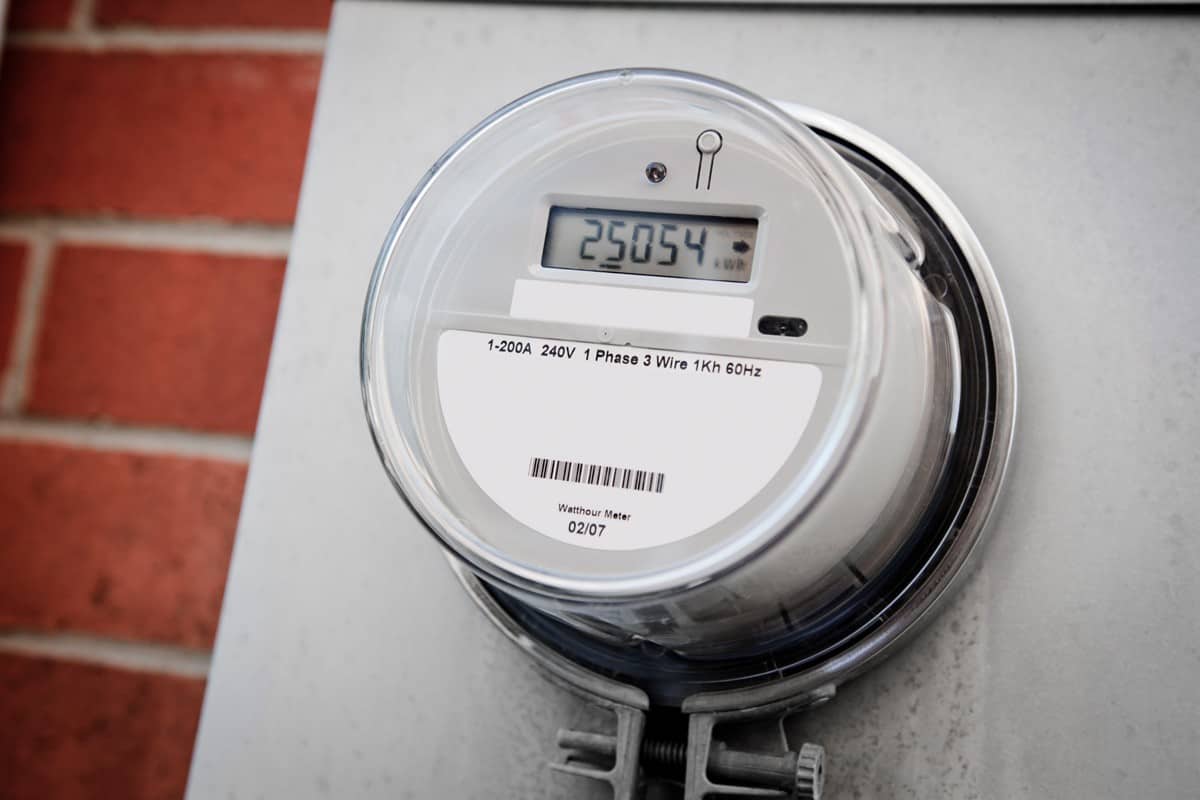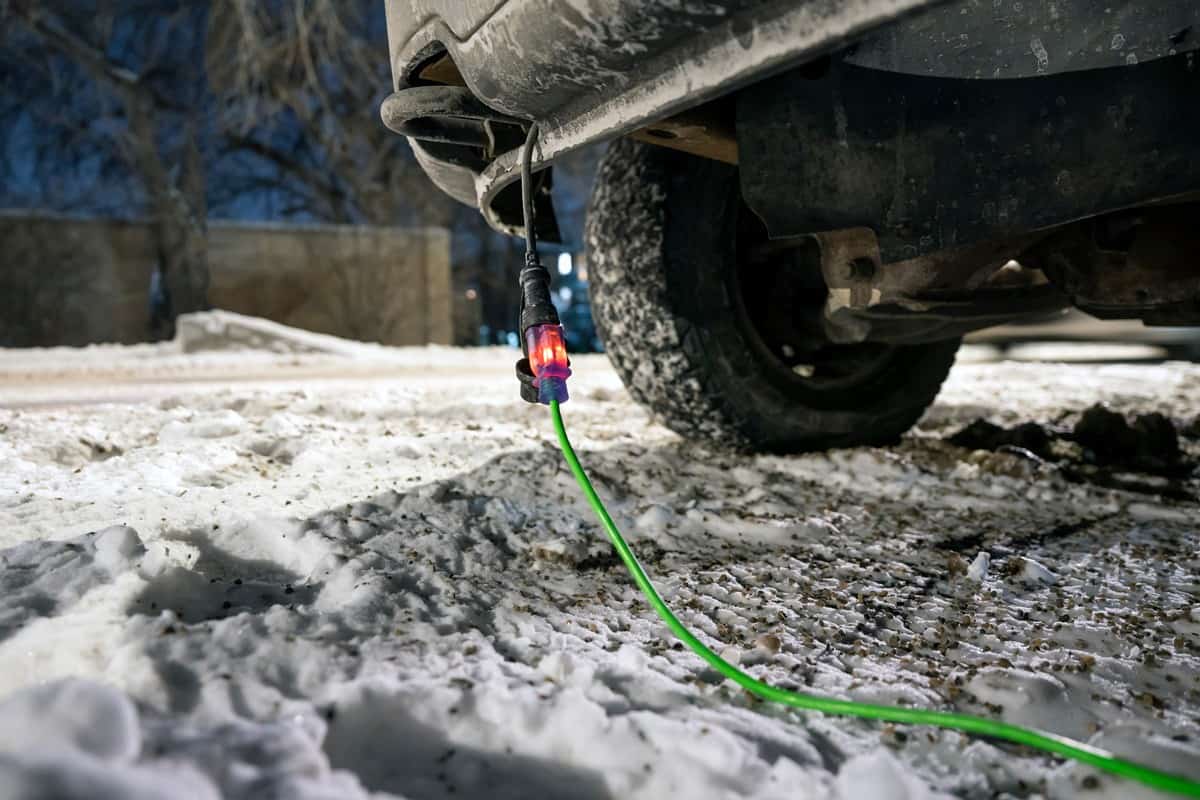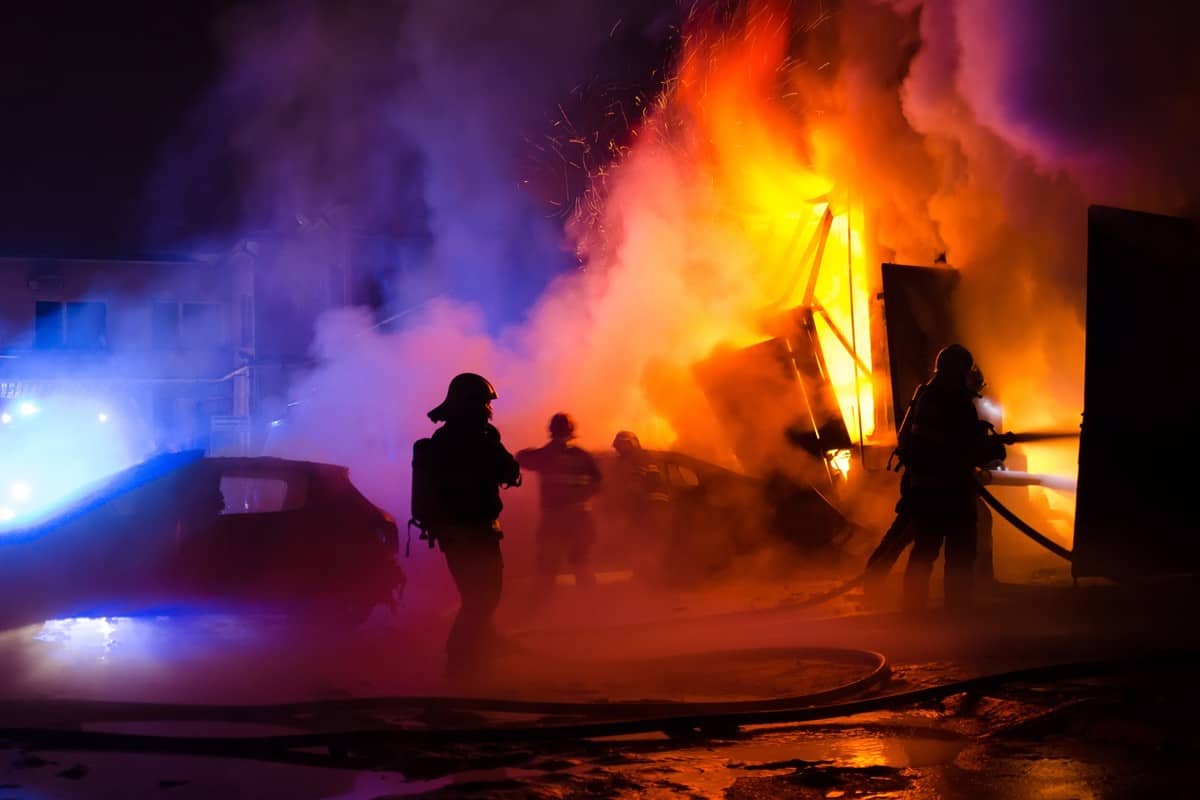As tough as your vehicle's engine has been manufactured, plunging winter temperatures can make it impossible to start. Extreme mercury lows can also damage your drive train's vital components. To remedy this situation, some vehicle owners will install a block heater. How hot will this get your engine? We researched these devices from multiple experts, so you'll know for sure.
A block heater will heat your engine to 140 degrees Fahrenheit, depending on how long it stays connected.
Now that we know how hot a block heater will get your engine, we'll look at how these devices work. You might also be curious if it's okay to leave a block heater plugged in overnight or how long it takes for a block heater to warm up the engine. For the answers to these questions and more, read ahead in this post to see what our research has uncovered.

How do block heaters work?
A block heater works by heating certain fluids, increasing your engine's temperature. There are several types of block heaters on the market, each performing a bit differently from the other.
The most used block heater has been installed on the engine block. It has a heating element that is submerged into the engine coolant. By plugging the block heater into a power supply [any 110 plugs will work], the engine coolant will begin to rise in temperature. This will make the rest of the engine warmer, including the oil.
The colder the oil is, the more your engine will have to strain to get started. But by warming the engine oil, you can decrease the oil's viscosity and make it flow through the engine more accessible and faster. There are numerous models of engine pan heaters available that will accomplish this.
No matter what block heater you use, we recommend you have it professionally installed. This will cost a bit in labor, but you will have the peace of mind that it has been done the first time correctly.
Is it okay to leave a block heater plugged in overnight?
When researching block heaters, we found some users that discussed leaving their block heaters on overnight. Though it could be considered a common practice among some drivers, our experts have determined that this is unsafe and wasteful.
Using a block heater safely means checking on it periodically. Though almost always safe, these devices have been known to cause vehicle and structure fires. Just plugging one in and letting it sit unattended can be dangerous.
Leaving a block heater in for that long will also use much more energy than necessary. These devices will warm an engine to temperature, and any excess heat will be expelled away from the block. This can make for a higher electric bill, especially if you leave the block heater plugged in for 8 to 12-hour stretches.

How long will it take a block heater to heat an engine?
The time it will take for a block heater to warm your engine will depend on several factors. The amount of wattage the heater uses is pretty significant. The higher the wattage, the hotter the heating element will become.
But the temperature will also affect how fast the block heater will work. The colder it is, the longer it will take for the block heater to get your engine up to temperature.
On average, users report that their block heaters are effectively warming their engines after two to three hours. Remember that it can take longer under the most extreme cold weather conditions.

Can you start a car with a block heater plugged in?
While starting the engine with the block heater plugged in won't damage your vehicle or the device, it's still good practice to unplug the heater before you fire up your car or truck.
There's always a chance that you'll forget to unplug the heater before you drive away. This can lead to cords being wrapped around moving parts, damaging the device's wiring and your vehicle.
Does a block heater warm up the battery?
A block heater's purpose is to warm the engine of the vehicle. While any additional heat under the hood might warm the battery, this is not an effective way to warm up a car battery. But since the warmed engine is under less strain, it will put a lot less stress on the battery and allow it to last longer.
You can warm your car battery with a battery blanket. This is wrapped around your battery, encasing it inside the heating elements.
The battery blanket can be safely plugged into any electrical outlet. A warm battery will help you turn over your engine quickly and efficiently, getting you off on your journey without delays.
Can a block heater start a fire?
When using a block heater to warm your engine this winter, you'll want to be sure that you adhere to all safety guidelines recommended by the manufacturer. A block heater can start a vehicle or structure fire if not properly used. There are generally three ways that these will ignite a fire.
The heating element is pulled from its position.
Most block heaters will be comprised of a heating element inserted into the engine's frost plug. Others will adhere to the oil pan. If these are pulled from their intended position, the heating elements will pose a fire threat.
Make sure that you have your heating element secured. It's also a good idea not to leave them unmonitored for long.
Additionally, you should make sure that there is nothing on the ground around the vehicle that could easily ignite if the heating element falls from its proper place. Check to ensure no paper, spilled fluids, or other flammable debris.
Faulty wiring
The wiring harness for block heaters is made to withstand rugged conditions. But these wires will still wear over time. This is especially true if they are not stored correctly.
Carefully inspect the wire harness from end to end. Make sure that nothing is exposed. It's a great idea to do this before the start of the winter season every year, giving you enough time to replace it if necessary.
Extension cord malfunctions
Extension cords should always be inspected before they are used. These cords are convenient but are also a common cause of fires. A faulty extension cord could ignite a spark that leads to flames in your garage.
Carefully wrap up your cord after every use, ensuring you don't "kink" it. Safely store it between services in a place free of moisture and away from rodents that might be tempted to gnaw on it.

Final thoughts
Block heaters provide an effective way to warm your engine so that it will start during extremely cold temperatures. These devices should be used carefully, as they can start vehicle and structure fires if left unmonitored for too long. In the coldest weather, expect several hours for the block heater to fully warm your engine. Drive safe!
We hope this post on block heaters answered all of your questions. For more helpful automotive information, we suggest reading the following posts:
Check Engine Light Comes On And Off While Driving – What Could Be Wrong?
Check Engine Light Comes On After Getting Gas – WWhat'sWrong?
